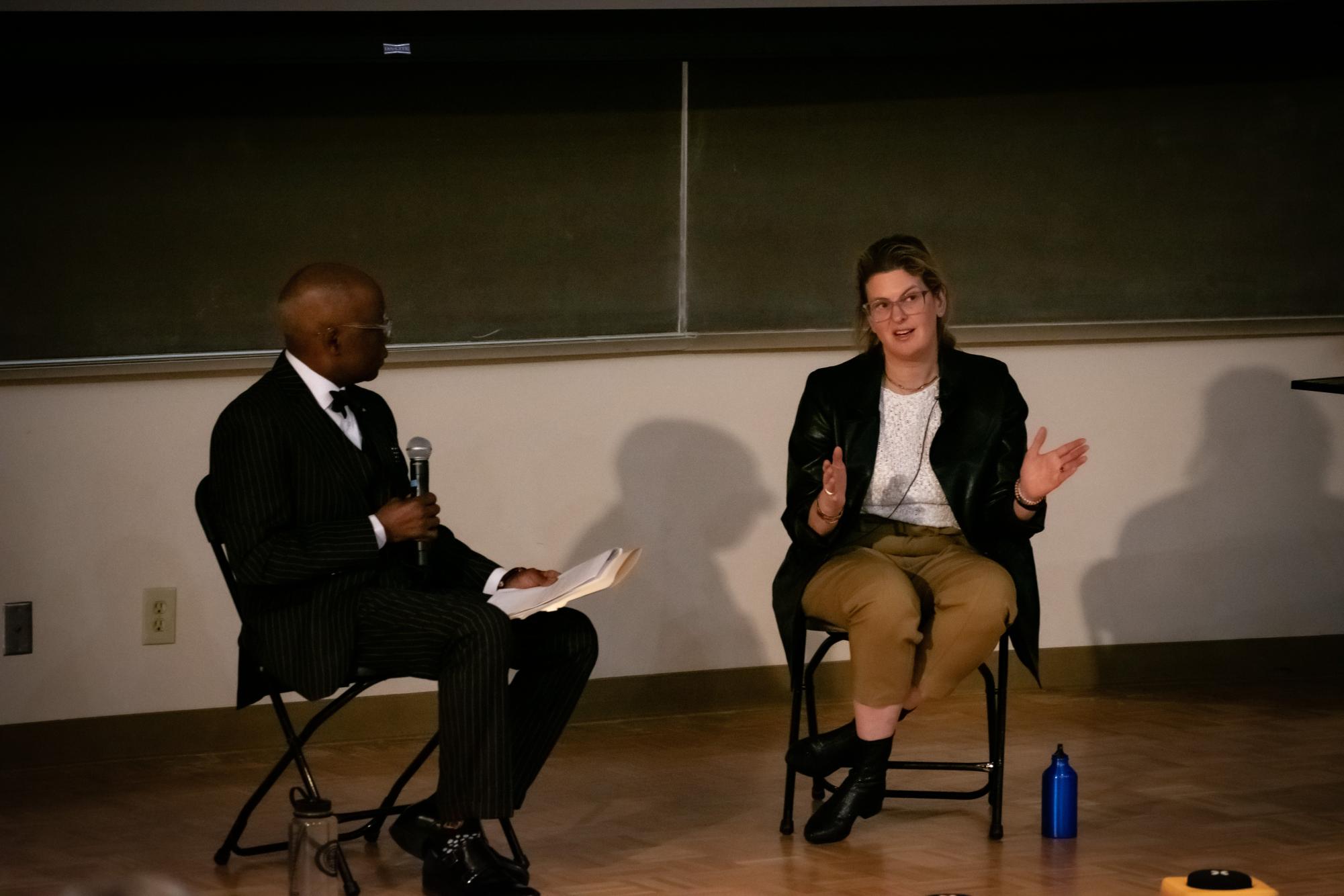
Jan. 25 marked the first installment of the Dialogue and Dignity speaker series. This series includes speakers, workshops and conversations that are an initiative to promote discussions around recent events in Israel and Gaza.
In an email to the Whitman community on Nov. 28, President Sarah Bolton addressed community concerns and introduced the initiative to be co-led by the Provost, the Dean of Students and the Vice President for Diversity and Inclusion. In the message, Bolton outlined what the general content of the speakers will cover.
“The group will start with a focus on Israel and Gaza by bringing speakers and programs to campus that offer multiple perspectives on the conflict. Through this group, as well as in other ways, campus leaders will work with outside experts to advance ongoing efforts to address the related issues of antisemitism and Islamophobia,” Bolton said.
This series comes as a response to concerns by various community members to directly address the ongoing war in Israel and Gaza. In a statement to The Wire, Dean of Students Kazi Joshua discussed what the organizers hope will be the outcome of the series.
“It is our hope that the “Dignity and Dialogue” series will provide opportunities for engagement with a variety of speakers coming from diverse points of view regarding, in this case, the current conflict in Israel/Gaza,” Joshua said. “We believe while the issue is complex, it is possible to have informed and thoughtful conversations, as should be expected at an educational institution. Respecting both the freedom of exchange of ideas and a climate in which all people have a sense of belonging on the campus.”
Joshua discussed further initiatives that are taking place to encourage respectful and understanding discussions and hopes this is a sustained approach that will continue after the conclusion of the series.
In tandem with the Dialogue and Dignity series, Associate Professor of Philosophy Emeritus Tom Davis is holding a series of six lectures devoted to “Coming to Terms with October 7.”
In a statement to The Wire, Davis explained why he was doing a lecture series that did not fall under Dialogue and Dignity.
“The specific proposed lectures were not presented to the administration until too late in the decision process, but I was told I could offer them myself independently of the official “Dialogue and Dignity” program,” Davis said.
Davis discussed what he hopes the audience will take away from his series of lectures and presents questions that he encourages individuals to consider when engaging in conversations around this topic in the future.
“[I hope] that people will come to terms with Oct. 7 by recognizing what happened as morally horrific and then go beyond condemning the attack to honestly think through how and why the actual events of the attack were morally horrific. Can individuals reflect on the intensity of their emotions and feelings after the fact in light of the conversations had during the lecture series? Will people better recognize the moral complexity of the historical situation in Israel/Palestine? Will people come to understand that because you focus on one kind of horror that does not mean you are not considering other forms of moral horror?” Davis said.
Mira Sucharov, Professor of Political Science at Carleton University, gave a guest talk as part of the series on Jan. 31 titled “Identity and Justice is Israel/Palestine.”
“I really enjoy connecting with audiences on this issue and helping them think about how to talk about these issues in a more effective way. I feel that there’s a lot of value. I mean, I’m not in Israel or Palestine, I’m not an elected official. So what can I do? What I can do is help people think and talk about these issues more productively, and find ways that they feel that they can make a difference,” Sucharov said.
Sucharov said it is essential to establish good faith dialogue in these discussions and mutual respect for dignity while reconciling the identity attachment that individuals may have to these locations but seeking to understand the desire for peace and democracy amongst all.
“We’re talking about assuming that there’s a core group of people of good faith who care about at least freedom and democracy and dignity,” Sucharov said. “So then you say, I’m experiencing this as an attack on identity, but I think there might be something else behind it — i.e. the search for freedom, the search for pushing back oppression — how can we talk about this together?”
The next Dialogue and Dignity event is slated for Feb. 28, and will feature Roxy Manning, Ph.D. and Aya Caspi, certified trainers with the Center for Nonviolent Communication. The event will include a presentation on the benefits of practicing nonviolent communication. On Feb. 29, Manning and Caspi will facilitate smaller sessions on the application of nonviolent methods.





